餐桌上的大学教会我们什么(英语小故事餐桌上的大学)
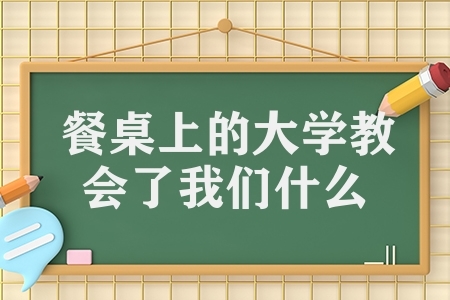
餐桌上的大学
The Dinner Table University
Papa, as a son of a dirt-poor farmer, left school early and went to work in a factory, for education was for the rich then.
爸爸是贫困农民的孩子,他很早就辍学了,在一家工厂上班,因为那时教育是富人才能得到的东西。
So, the world became his school.
所以,世界成了他的学校。
With great interest, he read everything he could lay his hands on, listened to the town elders and learned about the world beyond his tiny hometown.
他带着极大的兴趣阅读他能得到的一切东西,倾听镇子上老人们所说的见闻,了解这个世界而非仅限于他所在的小镇。
"There's so much to learn," he'd say. "Though we're born stupid, only the stupid remain that way."
“有那么多知识需要我们去学习,” 他经常说,“尽管我们生下来的时候一无所知,但只有蠢人才会止步不前。”
He was determined that none of his children would be denied an education.
他下定决心,他的所有孩子都要得到教育。
Thus, Papa insisted that we learn at least one new thing each day.
因此,爸爸坚持要求我们每天都应该学到至少一个新知识。
Though, as children, we thought this was crazy, it would never have occurred to us to deny Papa a request.
但是,作为孩子,我们觉得这有点疯狂,不过我们从来不会违背爸爸的要求。
And dinner time seemed perfect for sharing what we had learned.
晚餐时间似乎是分享我们所学知识的好时候。
We would talk about the news of the day; no matter how insignificant, it was never taken lightly.
我们会谈论那一天的新闻,不管多么微不足道,爸爸从来不会轻视它。
Papa would listen carefully and was ready with some comment, always to the point.
爸爸会认真倾听,随时做出评论,而且评论一直都很中肯。
Then came the moment —the time to share the day's new learning.
这个时刻来了——分享白天新学到的知识的时刻。
Papa, at the head of the table, would push back his chair and pour a glass of red wine, ready to listen.
爸爸坐在桌子的首位,他会把凳子稍微往后挪一点,斟上一杯红酒,准备好倾听我们的分享。
"Felice," he'd say, "tell me what you learned today."
“费利斯,” 他说,“告诉我你今天学到了什么。”
"I learned that the population of Nepal is…" Silence.
“我知道了尼泊尔的人口……” 一阵沉默。
Papa was thinking about what was said, as if the salvation(拯救) of the world would depend upon it.
爸爸在思考我所说的东西,就好像可以靠它拯救世界似的。
"The population of Nepal. Hmm. Well…" he'd say. "Get the map; let's see where Nepal is."
“尼泊尔的人口。嗯。挺好的……” 他说,“把地图拿来,让我们看看尼泊尔在哪。”
And the whole family went on a search for Nepal.
然后一家人就开始寻找尼泊尔在地图上的位置。
This same experience was repeated until each family member had a turn.
这种相同的经历会不断重复,直到每个家庭成员都分享了一轮。
Dinner ended only after we had a clear understanding of at least half a dozen such facts.
只有我们清楚了解了至少六个这样的知识,晚餐才算结束。
As children, we thought very little about these educational wonders.
作为孩子,我们不怎么知道这种教育的好处。
Our family, however, was growing together, sharing experiences and participating in one another's education.
但是我们一家人在一起成长,分享各自的见闻,参与到别人的学习过程之中。
And by looking at us, listening to us, respecting our input, affirming(肯定) our value, giving us a sense of dignity, Papa was unquestionably our most influential teacher.
爸爸无疑是对我们影响最大的老师,他看着我们,倾听着我们,尊重我们所说的话,肯定我们的价值,给我们尊严感。
Later during my training as a future teacher, I studied with some of the most famous educators.
后来,在我作为准教师接受培训的时候,我和一些最著名的教育家们研究讨论。
They were imparting(告知) what Papa had known all along —the value of continual learning.
他们传授的是爸爸一直知道的东西——不断学习的重要性。
His technique has served me well all my life.
他的教育方法对我的一生产生了积极影响。
Not a single day has been wasted, though I can never tell when knowing the population of Nepal might prove useful.
我没有浪费掉任何一天,尽管我永远无法告诉你知道尼泊尔的人口什么时候才能派得上用场。
相关问答
-
留学韩国好的大学院校有哪些
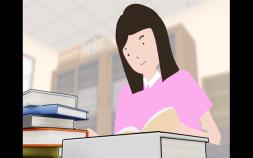
留学韩国好的大学院校分别是什么呢?小伙伴们可有了解过?不妨一起来关注下吧!那么,以下是小编为大家带来的关于留学韩国好的大学院
阅读更多 -
河北三本大学排名(河北三本大学排名前十)

三本院校排行榜河北省民办三本院校排名如下:河北科技学院 河北科技学院是经国家教育部批准以实施本科教育为主,同时举办专科层次的
阅读更多 -
二本大学排名(二本大学排名及分数线)

全国二本排名教育生活小林分享 2023-11-26 · 超过359用户采纳过TA的回答 关注 2023年全国公办二本大学排名前5名:广东财经大学、
阅读更多 -
二本大学排名(二本大学排名及分数线)

全国二本排名教育生活小林分享 2023-11-26 · 超过359用户采纳过TA的回答 关注 2023年全国公办二本大学排名前5名:广东财经大学、
阅读更多 -
湖北师范大学文理学院学费(湖北师范大学文理学院学费一览表)

湖北师范文理学院专升本学费1、湖北师范文理学院专升本学费:本科专业有18000、19000、21000元/年等不同标准,专科专业有12000、1300
阅读更多 -
湖北师范大学文理学院学费(湖北师范大学文理学院学费一览表)

湖北师范文理学院专升本学费1、湖北师范文理学院专升本学费:本科专业有18000、19000、21000元/年等不同标准,专科专业有12000、1300
阅读更多
最新问答
-

河南高考加分政策2024
2024-04-30 -
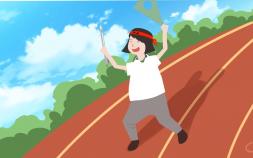
山西2024年高考体考报考人数
2024-04-30 -

2024山东高考时间科目表
2024-04-30 -

河北省2024年高考时间科目表
2024-04-30 -

上海2024高考加分政策具体情况
2024-04-30 -

山西2024高考科目考试时间
2024-04-30 -
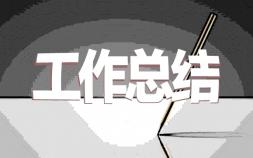
神十七乘组在轨工作总结
2024-04-29 -
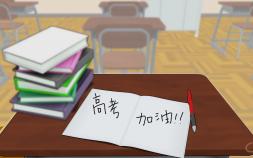
湖南高考时间2024时间表
2024-04-29 -

广东高考具体考试时间是什么时候
2024-04-29 -
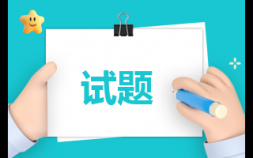
2024二年级数学练习题大全
2024-04-29
